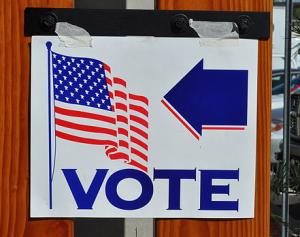
In the midst of the bombardment of news about the U.S. Senate’s secret health care bill, the Michigan Legislature whacking teachers (again) and President Trump lashing out about the FBI’s Russia investigation, it’s easy to overlook some revelations about Russia’s attempt to hack our electoral systems last year.
First, there was the Intercept’s blockbuster story about a top-secret NSA report detailing Russian hacking efforts. Bloomberg News followed up with a report that the hacking attempts were more widespread than previously thought, with 39 states targeted.
Long before these reports, Michigan was a focus of electoral integrity concerns, as our presidential contest was only decided by roughly 10,000 votes. The short-lived presidential recount shed light on problems with the process, especially in Detroit, home to more than 80 broken voting machines. After vote totals in a majority of precincts couldn’t be balanced, the state Bureau of Elections also conducted an audit. Despite stubborn conspiracy theories on the right about rampant voter fraud — which is rather curious, since Trump won the state — the audit found that “an abundance of human errors” by precinct workers was primarily to blame.
This month, the Washington Post had two experts run the numbers and assured us that the vote counts in Michigan and Wisconsin (another key state Trump won) weren’t hacked.
But there are still myriad concerns about possible breaches to voting systems going forward. Is Michigan prepared? I talked to someone with plenty of experience running elections here, two-term Ingham County Clerk Barb Byrum, who was also a former state representative from 2007 to 2012 and the ranking Democrat on the House Redistricting and Elections Committee. She has been awarded the national title of Certified Elections/Registration Administrator (CERA) serves on the Security Task Force with other national members for Election Center.

Byrum says she believes Michigan elections are “safe and secure as a result of the many safeguards that municipal and county clerks utilize, including the isolation of election networks, the paper ballot trail, and the ability to conduct post-election audits and recounts.” She stressed that the audits are vital.
The clerk also shared her experience in the 2016 general election. She said the Michigan Secretary of State’s Office prompted radio-to-radio communication, implemented through the Michigan State Police, the week before the election.
“I worked closely with the Bureau of Elections and Ingham County’s emergency manager to take all necessary precautions to be able to communicate in case there was any interruption in communication,” Byrum said. “Thankfully, internet and phone services remained intact during the process of the election.”
Byrum noted one change going forward. She said the Secretary of State’s office plans to facilitate the forwarding of emails from voters based outside of the United States to county and municipal clerks through a free email service. She said she has concerns and is raising them with the Bureau of Elections.
“Given the nature of recent hacking attempts, both successful and not, I am alarmed by the recent announcement from the Bureau of Elections. … I worry that encryption will not be sufficient,” Byrum said.



